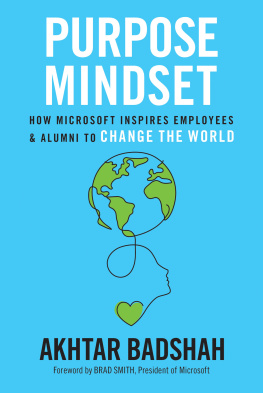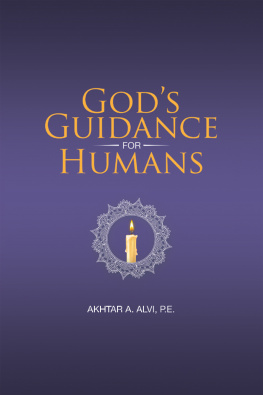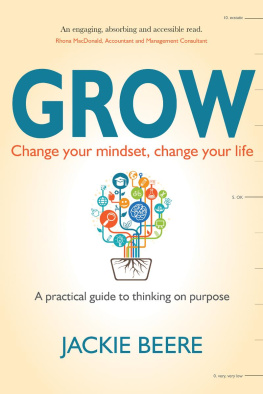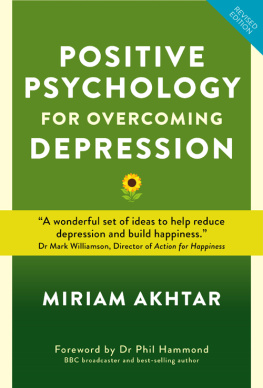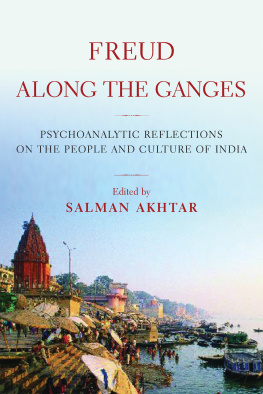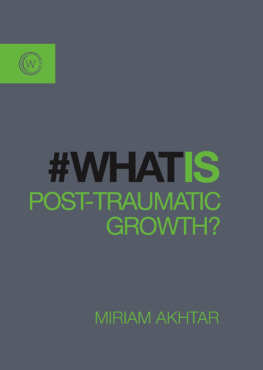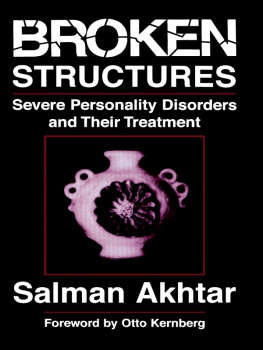Akhtar Badshah - Purpose Mindset
Here you can read online Akhtar Badshah - Purpose Mindset full text of the book (entire story) in english for free. Download pdf and epub, get meaning, cover and reviews about this ebook. year: 2020, publisher: Harpercollins Leadership, genre: Politics. Description of the work, (preface) as well as reviews are available. Best literature library LitArk.com created for fans of good reading and offers a wide selection of genres:
Romance novel
Science fiction
Adventure
Detective
Science
History
Home and family
Prose
Art
Politics
Computer
Non-fiction
Religion
Business
Children
Humor
Choose a favorite category and find really read worthwhile books. Enjoy immersion in the world of imagination, feel the emotions of the characters or learn something new for yourself, make an fascinating discovery.
- Book:Purpose Mindset
- Author:
- Publisher:Harpercollins Leadership
- Genre:
- Year:2020
- Rating:3 / 5
- Favourites:Add to favourites
- Your mark:
- 60
- 1
- 2
- 3
- 4
- 5
Purpose Mindset: summary, description and annotation
We offer to read an annotation, description, summary or preface (depends on what the author of the book "Purpose Mindset" wrote himself). If you haven't found the necessary information about the book — write in the comments, we will try to find it.
Purpose Mindset — read online for free the complete book (whole text) full work
Below is the text of the book, divided by pages. System saving the place of the last page read, allows you to conveniently read the book "Purpose Mindset" online for free, without having to search again every time where you left off. Put a bookmark, and you can go to the page where you finished reading at any time.
Font size:
Interval:
Bookmark:
2020 Akhtar Badshah
All rights reserved. No portion of this book may be reproduced, stored in a retrieval system, or transmitted in any form or by any meanselectronic, mechanical, photocopy, recording, scanning, or otherexcept for brief quotations in critical reviews or articles, without the prior written permission of the publisher.
Published by HarperCollins Leadership, an imprint of HarperCollins Focus LLC.
Book design by Aubrey Khan, Neuwirth & Associates
Any internet addresses, phone numbers, or company or product information printed in this book are offered as a resource and are not intended in any way to be or to imply an endorsement by HarperCollins Leadership, nor does HarperCollins Leadership vouch for the existence, content, or services of these sites, phone numbers, companies, or products beyond the life of this book.
ISBN 978-1-4016-0369-4 (eBook)
ISBN 978-1-4016-0358-8 (HC)
Epub Edition September 2020 9781401603694
Library of Congress Control Number: 2020943540
Printed in the United States of America
20 21 22 23 LSC 10 9 8 7 6 5 4 3 2 1
Information about External Hyperlinks in this ebook
Please note that the endnotes in this ebook may contain hyperlinks to external websites as part of bibliographic citations. These hyperlinks have not been activated by the publisher, who cannot verify the accuracy of these links beyond the date of publication
To Alka for setting the example for kindness and giving
I cannot believe that the purpose of life is to be happy. I think the purpose of life is to be useful, to be responsible, to be compassionate. It is, above all to matter: to count, to stand for something, to have made some difference that you lived at all.
LEO ROSTEN (19081997),
humorist, screenwriter, political scientist
by Brad Smith, President, Microsoft Corporation
I STILL REMEMBER ONE OF my first conversations with Akhtar Badshah. We had recruited Akhtar in 2004 to lead Microsofts community affairs team, a precursor to what today we call Microsoft Philanthropies. It was a big job, as the team was already well on its way to becoming one of the largest corporate philanthropies in the world. We had hired Akhtar not only for the global perspective we thought he would bring to our work but for his personal passion and track record in delivering effective results in nonprofit work.
Over lunch in early 2005 in one of Microsofts employee cafeterias, Akhtar and I debated the best way to build on the team that hed inherited as the third leader of the companys philanthropic work in this field. It was already a broad foundation. Many people around the world are aware of the enormous financial success of Microsofts founders and early employees, including Bill Gates. Less widely appreciated is the extraordinary degree to which Bill and his cofounder, Paul Allen, decided to distribute among employees so many shares in the companys stock, including through stock options. While this has evolved over the years, the broad distribution of stock remains a defining economic feature of Microsoft to this day.
As the world would witness, Microsoft changed the course of digital technology. This success created many affluent and even wealthy employees. The question was what all these individuals would do with their money. Many not surprisingly bought a larger home or a nicer car. But the good news was that a large majority of employees also thought about the world in broader terms. They increasingly asked what they could personally do to help make it better.
In no small measure, I have always attributed this to a second early decision by Microsofts founding generation. They embraced a culture of giving that not only encouraged but celebrated volunteer and financial donations to local nonprofit groups. They created a Giving Campaign that matched employee cash contributions to nonprofits with an equal donation by Microsoft itself, initially up to $10,000 per year. (The amount today is $15,000.)
This early beginning sprung what is almost certainly the most generous employee donation program in the history of business. In recent months the total cumulative employee donations, including Microsofts match, has topped $2 billion. The money has flowed literally to hundreds of thousands of nonprofits around the world. It has touched the lives of hundreds of millions of people.
As Akhtar and I discussed in 2005, when Microsoft approached what was that year its thirtieth birthday, this culture of giving created an opportunity to dream even bigger dreams. How could we contribute to more systemic, lasting, and positive change? How could we aim higher and become more strategic with Microsofts philanthropic work? And how could this create new opportunities both for the institutions we would support and for the individuals who might get more involved?
In so many ways, this book highlights the answers that emerged. Told through the experiences of current and former Microsoft employees and nonprofit leaders around the world, Purpose Mindset lives up to its name. Reflecting years of thought borne from Akhtars work and teaching, this book serves as a practical guide with lessons that are valuable for anyone who cares about helping to make the world a better place.
Along the way, Akhtar also has a knack for sharing a good story.
Many of these stories come from within Microsoft itself. These include Microsofts first couple, the label applied to Tricia and Jeff Raikes, who became the first Microsoft couple to get married. Since leaving the company, they have played an increasingly important and public role on issues like racial equity. Another is Jean-Philippe Courtois, one of Microsofts most tenured executives. He has channeled the heartbreak of losing a son into a family foundation that is making a difference for a new generation of young entrepreneurs around the world.
Other lessons come from work done elsewhere, including by Microsoft alumni. One of my favorites is about Paul Maritz, who became the CEO of VMware in 2008 and injected into his new company the culture of giving that he had experienced at Microsoft. Pauls ultimate lesson speaks to anyone wanting to drive this type of cultural change. As he recounts, he came to appreciate the lesson he shared with his new employees. Philanthropy is not only about contributing to other peoples lives. It is also about transforming your own.
The work is not easy, and it requires determination and a long-term commitment. It is illustrated well in the experience of Trish Millines Dziko, an African American woman whom Akhtar rightly describes as a Seattle institution. She has brought access to technology to a new generation of underrepresented and underserved communities, learning from experience what it takes to make philanthropic work successful.
Importantly, Purpose Mindset also shares lessons from mistakes easily made even by well-intentioned individuals who embrace volunteer and philanthropic opportunities. One of my favorites comes in , as Akhtar writes about how easy it is for individuals who have been successful in one part of their life to become cocky and arrogant as they engage in something new and different. Its an important insight for all of us. And it helps explain why a purpose mindset needs to build on a growth mindsetan approach that starts with a recognition that we all have far more to learn that we may even recognize.
All this has become more important and urgent with the dawn of a new decade. The year 2020 brought first a pandemic that is unprecedented in our lifetimes. It has been followed by a national reawakening across the United States regarding the systemic racism that has persisted in our country for more than four centuries. At Microsoft, both issues have called on us to assess anew how we can contribute more purposefully and positively to better meet the nations needsnot just for some people but for everyone. We have taken new steps, recognizing that they are just the first of many new steps we and others will need to take together.
Font size:
Interval:
Bookmark:
Similar books «Purpose Mindset»
Look at similar books to Purpose Mindset. We have selected literature similar in name and meaning in the hope of providing readers with more options to find new, interesting, not yet read works.
Discussion, reviews of the book Purpose Mindset and just readers' own opinions. Leave your comments, write what you think about the work, its meaning or the main characters. Specify what exactly you liked and what you didn't like, and why you think so.

